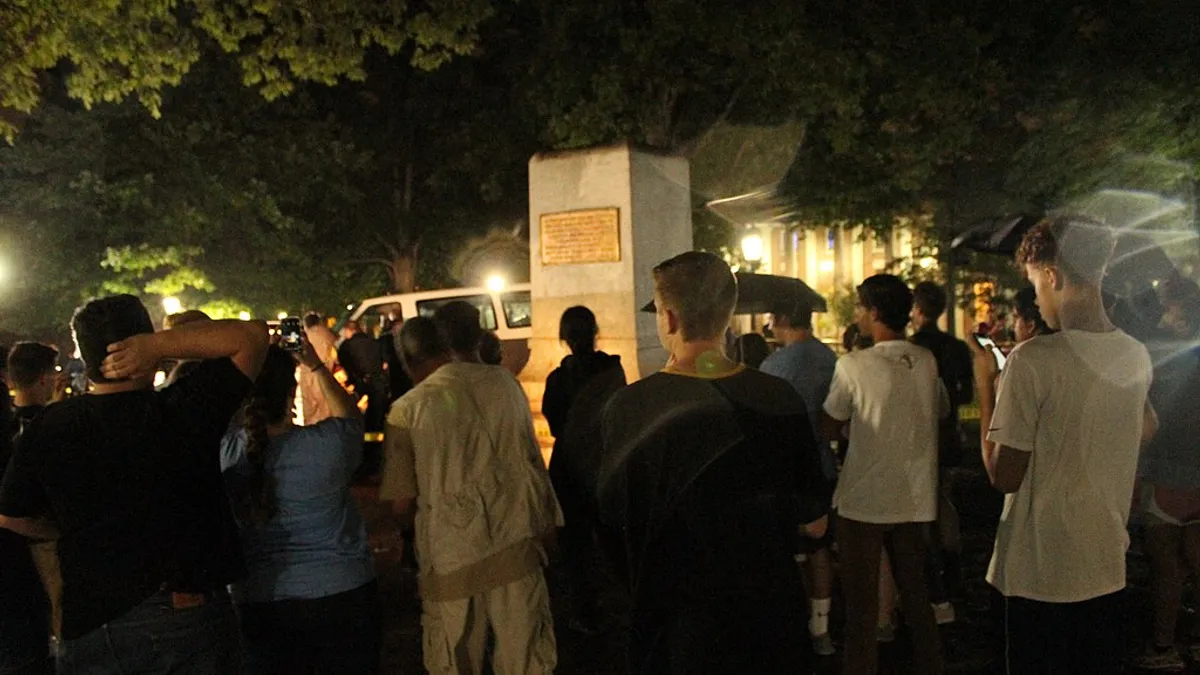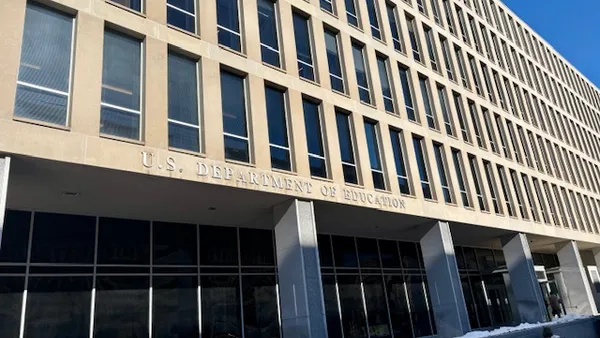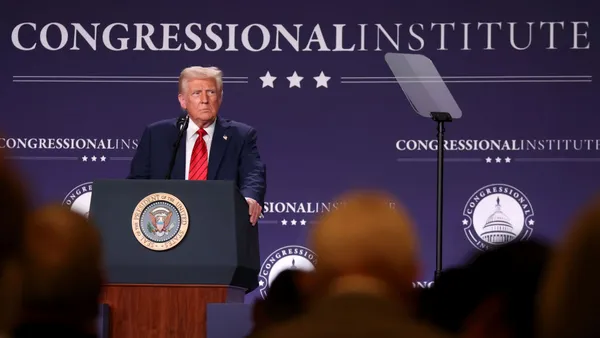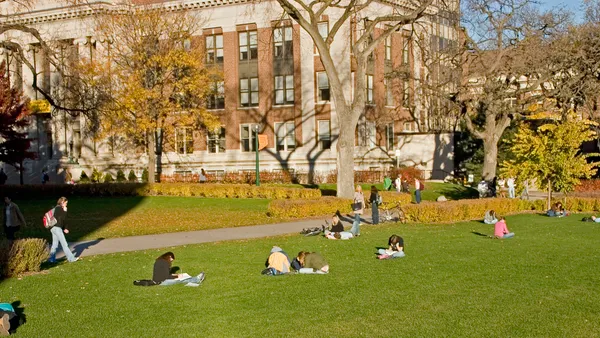Dive Brief:
- The heated debate about the fate of a toppled Confederate monument on the campus of the University of North Carolina at Chapel Hill continued to simmer last week, according to The Washington Post, with 450 professors signing a letter urging the university not to return the Silent Sam statue to its original prominent location. Nearly 60 black faculty members wrote an additional letter of protest.
- Those moves follow a series of contentious events related to the 104-year-old monument. It was splashed with paint and blood in April and pulled down by protestors in August. Earlier this month, UNC Chancellor Carol Folt said in a statement that the statue could be installed at a different location on campus.
- The letter penned by black faculty members said the statue creates a "demoralizing burden." It calls the statue "a monument to white supremacy, steeped in a history of violence against Black people, and that continues to attract white supremacists, creates a racially hostile work environment and diminishes the University's reputation worldwide."
Dive Insight:
The ongoing clash over symbols of the Confederacy on college campuses was brought to a head after a much-publicized march by white supremacists in Charlottesville, Virginia, last summer that resulted in one death and Confederate statues there being covered temporarily. The debate about such monuments has occurred on several campuses, including the University of Texas at Austin, where officials took down or moved several such statues.
Yet Confederate symbols are pervasive across the U.S., particularly in the South. Since the July 2015 mass shooting at the Emanuel A.M.E Church in Charleston, South Carolina by a white supremacist seeking to start a "race war," killing nine black attendees, more than 100 Confederate symbols nationwide have been removed, according to the Southern Poverty Law Center (SPLC), while more than 1,700 still stand.
The event intensified initial calls for universities, in particular, to remove statues and rename buildings that recognized Confederate figures and ideals. The symbols identified in the SPLC report include roads, schools, parks, buildings, holidays, flags, scholarships and monuments.
University officials expect continued debate over such issues this academic year, and they are preparing for it to be "combative and potentially violent," Politico reported. Others are concerned about student reactions to a more strident political environment. Experts recommend university officials plan carefully in advance, act decisively, provide opportunities for students to express opinions and require better training for those handling protests.
But balancing the needs for free speech and campus safety will continue to be contentious. The University of Washington must pay $127,000 to settle a lawsuit from the College Republicans campus group who said they were unfairly charged for extra security when they hosted a controversial speaker. In Wisconsin, a student who was asked to stop handing out valentines with a religious theme filed a federal lawsuit against the college when campus security personnel stopped her from the activity outside a prescribed area.












